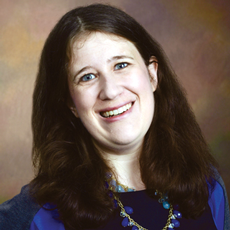
If readers have wondered where my byline has been for the past few months, I’ve been on leave after entering the hospital in February. Luckily, I got a baby out of the experience.
(His name is Morty, he was born on Feb. 28, and he is the best, cutest baby in the world. That’s not me losing my objectivity as a journalist; it’s just a New Mom fact.)
Today, life is great. But at 32 weeks, my pregnancy showed how quickly medical situations can take a nosedive and how medical students can be an asset to patients, and potentially your facility.
Let’s back up. Until the beginning of the year I was having a normal, boring pregnancy. Literally, one doctor concluded a visit by smiling and saying, “You’re boring, get out.” (We have a similar sense of humor.) Then I caught the flu. In February, mostly for fun, I agreed to be a test subject for medical students at Northwestern. (They listened to the baby’s heartbeat, something I always enjoyed hearing.)
During the exam, two of the medical students commented on my swollen ankles. That set off alarm bells in my head, and afterward I asked someone afterwards to take my blood pressure. It was a little high — about 140/70, above my normal 120/80 baseline. That was Friday. By Sunday it was 175/86 via a home blood pressure machine. I insisted there was something wrong with the machine but after talking with a doctor, I dragged myself into the hospital. At that point, it was something like 185/90, which starts putting you in Lady Sybil territory.
While the medication worked and doctors had sent me home, a few weeks later I was back at the hospital. Unable to sleep, I spent the wee hours of Feb. 28 answering email and working on McKnight’s stuff because I figured perhaps I’d be in the hospital for a few days. But by the morning, another doctor said, “Elizabeth, I’m done with you being pregnant.” I had moved from having gestational hypertension to preeclampsia.
It will come as no particular shock to anyone who has worked with me that I basically argued with everyone about the decision to deliver the baby up until being wheeled into surgery, mostly because I was worried about him being born early. While Morty spent 10 days in the NICU from apnea of prematurity (a fancy term that basically means he had to work on breathing while growing), we both received top-notch medical care.
It wasn’t until a solid month later that I realized the skill and calmness of all my providers led to them saving our lives. (For those in the Chicagoland area, we were patients of Women’s Group of Northwestern and Northwestern Medicine Prentice Women’s Hospital. Every person I dealt with was an amazing beautiful unicorn of a healthcare professional. We can’t thank them enough.)
As I had more time to reflect, I realized I had experienced what many of you see every day, which is that medical conditions can change extremely fast. Don’t become complacent when managing a nursing home resident in good spirits and health. Even putting aside pregnancy, changes in condition, ranging from high blood pressure to a fever, can start a cascade of serious problems.
Second, what made the whole experience manageable was the absolute trust we had with every medical professional dealing with me or Morty, from the housekeeping staff to the NICU nurses to our many, many doctors. I cannot overemphasize the importance of the family of your residents having faith that you and your team know what they are doing.
Third, invite those young medical students into your facility to practice assessments, or as part of an exam. They have the time to be thorough and to catch problems. Plus, they are charming and enthusiastic, something long-term care often needs.
Reinforce to your staff the importance of staying calm when there’s a medical crisis. This is not to be confused with apathy, but rather a demeanor that says, “We have this under control.” That, in turn, will decrease anxiety/agitation both in the patient and family.
Finally, don’t underestimate the importance of gestures and actions for your staff after a hospital stay. While it may not be advisable to visit a new mom in the hospital (if you do, bring a milkshake), it’s always appropriate to send a card or beautiful flowers, as McKnight’s did.
Parenthood doesn’t radically change your personality: I’m still the same writer with snarky lines and a sentimental heart, albeit one who clocks in less sleep than she used to. There is one big thing, however, for which I’ve developed a new appreciation. That’s the amount of healthcare professionals around all of us trying to make our lives better. Whether it’s in a maternity ward or a nursing home, thank you for your service and dedication.
Follow Senior Editor Elizabeth Newman @TigerELN.



